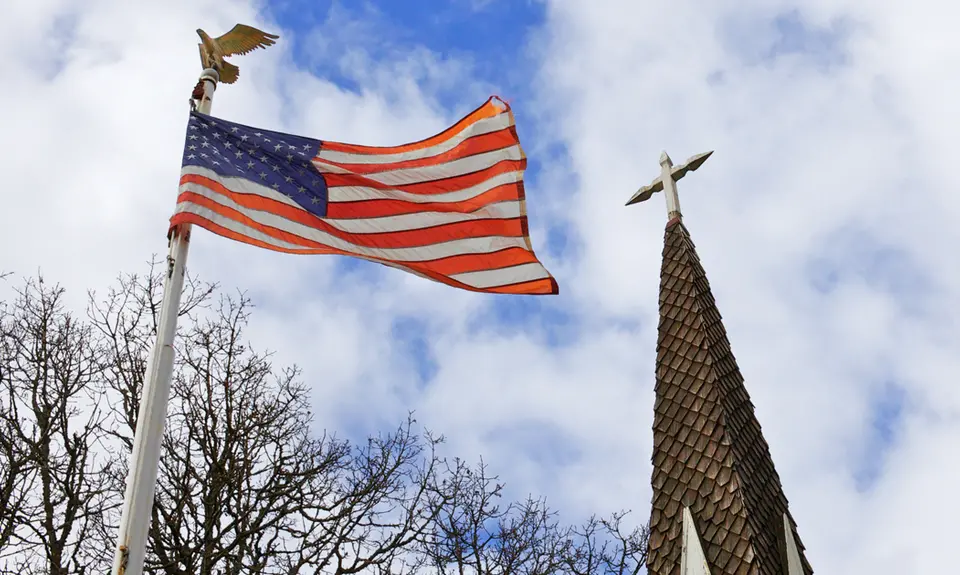On May 29, People For the American Way Foundation joined with organizational allies to file a friend-of-the-court brief with the U.S. Court of Appeals for the Ninth Circuit in a case challenging President Trump's discriminatory birth control rollback. In two rules issued last fall, the Trump administration nullified the Affordable Care Act's birth control mandate by carving out a sweeping religious exemption that allows employers and universities to withhold comprehensive reproductive health care coverage. As we note in our brief, in purporting to accommodate the religious exercise of some, the Trump administration unconstitutionally imposed the costs and burdens of those beliefs on others. Our brief’s introduction follows below. Click here to download a PDF copy of the full brief.
The Women’s Health Amendment to the Patient Protection and Affordable Care Act and the ACA’s implementing regulations require that employer-provided health plans cover preventive care for women—including all FDA-approved methods of contraception, as well as counseling in the medically appropriate selection and use thereof—without cost to the insureds. See 42 U.S.C. § 300gg-13(a)(4); 26 C.F.R. § 54.9815-2713(a)(1)(iv); 29 C.F.R. § 2590.715-2713(a)(1)(iv); 45 C.F.R. § 147.130(a)(1)(iv). This requirement ensures insurance coverage for family-planning and other medical services that the government has determined are essential to women’s health and well-being. See INSTITUTE OF MEDICINE, CLINICAL PREVENTATIVE SERVICES FOR WOMEN: CLOSING THE GAPS 102–10 (2011), http://bit.ly/2t6lgfr.
Under 45 C.F.R. § 147.132(a)(1)(i)(A), houses of worship have been fully exempt from the requirement. Under 45 C.F.R. § 147.131(d), religiously affiliated entities have been entitled to a religious accommodation (i.e., an exemption) if they give notice that they want one; in that case, the government arranges for the coverage to be provided without cost to or participation by the objecting entity. And under Burwell v. Hobby Lobby Stores, Inc., 134 S. Ct. 2751 (2014), closely held for-profit businesses with religious objections are entitled to the same accommodation as are religiously affiliated entities.
On October 6, 2017, without notice-and-comment rulemaking, the U.S. Departments of Health and Human Services, Labor, and the Treasury issued two Interim Final Rules that nullify the contraceptive-coverage requirement’s protections for countless women by permitting employers and educational institutions not just to refuse to provide or pay for the insurance coverage, but also affirmatively to block provision of the coverage to employees and students. See Religious Exemptions and Accommodations for Coverage of Certain Preventative Services Under the Affordable Care Act, 82 Fed. Reg. 47,792; Moral Exemptions and Accommodations for Coverage of Certain Preventative Services Under the Affordable Care Act, 82 Fed. Reg. 47,838.
The Religious Exemption provides that all nongovernmental insurance-plan sponsors may, on the basis of religious objections, exempt themselves from the contraceptive-coverage requirement in a way that affirmatively bars the government from making separate arrangements to provide the coverage. See 82 Fed. Reg. at 47,806. Or objecting entities may instead elect to notify the government of their intention not to provide the coverage without standing in the way of the government’s separate arrangements (id.)—the accommodation that had already been available to all but publicly traded companies (see 26 C.F.R. § 54.9815-2713A; 29 C.F.R. § 2590.715-2713A; 45 C.F.R. § 147.131 (2015)). But objecting entities get to choose; and they may revoke their notice to the government if previously given, thus curtailing the government’s provision of the coverage. See 82 Fed. Reg. at 47,813.2
The Moral Exemption provides that nongovernmental insurance-plan sponsors (other than publicly traded for-profit companies) may also avail themselves of either of the two versions of the exemption—and switch between the two at will—based on what the government labels a nonreligious, “moral objection.” See 82 Fed. Reg. at 47,850, 47,854.
Amici agree with the district court that the government’s adoption of the Interim Final Rules violated the Administrative Procedure Act. We write to address additional, related reasons to affirm the preliminary injunction.
A. The Supreme Court has made clear that when evaluating religious exemptions from generally applicable laws, “courts must take adequate account of the burdens a requested accommodation may impose on nonbeneficiaries.” Cutter v. Wilkinson, 544 U.S. 709, 720 (2005). If in purporting to accommodate the religious exercise of some the government imposes costs and burdens of that religious exercise on others, it violates the Establishment Clause. See Estate of Thornton v. Caldor, Inc., 472 U.S. 703, 709–10 (1985). That is true whether a religious exemption is premised on the Religious Freedom Restoration Act (42 U.S.C. § 2000bb et seq.), on other federal or state statutes or regulations, or on the First Amendment’s Free Exercise Clause. See, e.g., Hobby Lobby, 134 S. Ct. at 2781 n.37; Cutter, 544 U.S. at 720; Caldor, 472 U.S. at 709–10. Yet the Religious Exemption here does just that: In the name of religious accommodation for businesses and colleges, it strips employees, students, dependents, and other innocent third parties of the insurance coverage to which they are entitled by law, thereby imposing on them substantial costs and burdens to obtain the critical healthcare that should be available to them free of charge.
B. The Supreme Court has also made clear that religious exemptions from general laws are permissible, if at all, only when they alleviate substantial government-imposed burdens on religious exercise. See, e.g., County of Allegheny v. ACLU of Greater Pittsburgh Chapter, 492 US. 573, 613 n.59 (1989). When they do not, they are unconstitutional preferences for religion. Amos, 483 U.S. at 334. Yet the government makes the Religious Exemption available without regard to whether any entity has demonstrated, or even asserted, that the pre-existing accommodation substantially burdens its religious exercise—a prerequisite that cannot be met. So RFRA does not authorize, and the Establishment Clause does not allow, the exemption.
C. Finally, although the government purports to create two classes of exemptions—religious and moral—the latter is just another version of the former, because the limited class of moral views recognized must, as a matter of law, be treated as religion. Hence, the exemptions are duplicative and suffer precisely the same constitutional defects. Neither Rule can stand.
